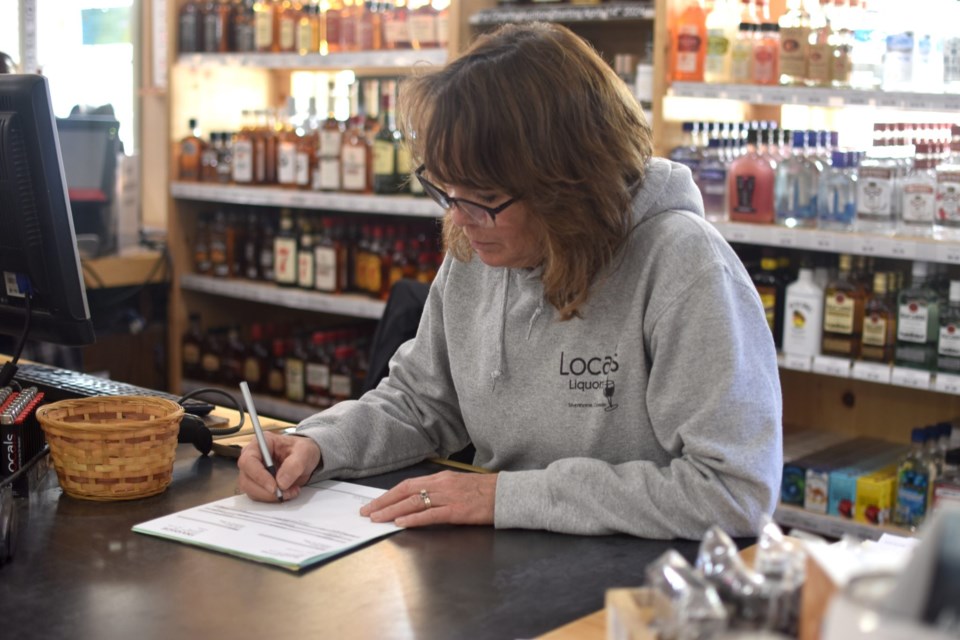A proposed bill that struggling liquor stores across the Western Slope saw as a lifeline was gutted in a Senate committee on Tuesday, May 7. Many stores said they are now bracing themselves for what they anticipate will be a tough road ahead.
According to the proponents, House Bill 1373 was meant to even out the playing field and ensure that independent liquor stores have a viable future now that grocery stores can sell wine. The bill proposed creating a cap on the strength of beverages that can be sold in grocery stores, placing rules on the prices alcohol wholesalers can charge and regulating where alcohol can be displayed in grocery stores. Sponsors of the bill have clarified that it was not meant to overturn the voter-approved measure, Proposition 125, but instead intended to provide some safeguards to ensure local liquor stores could keep their doors open.
House Bill 1373 was “postponed indefinitely” following a 3-4 vote in the Senate Committee on Finance May 7.
What does this mean for liquor stores on the Western Slope?
Sen. Dylan Roberts, a prime sponsor of the bill, said that based on what he heard from constituents, he felt this bill was crucial for the area he represents and the entire Western Slope.
“I think the reality is, we are going to see some (small locally-owned liquor stores) probably close over the next year because we didn’t get this bill done,” Roberts said.
Roberts stated that in rural mountain communities, local businesses have a larger presence than they do in more urban areas. He said the trickle-down effect is more extreme in these smaller economies where businesses rely on one another to survive.
Owner of Locals Liquors in Silverthorne, Chris Carran, said that things were getting dire for independent liquor stores across the Western Slope following the passage of Proposition 125.
She said now that this bill failed things could get even worse. “Fixed costs play a huge factor. I can’t change my rent. I can’t change what I’m paying for electricity. I can’t change what I’m paying for insurance,” Carran said. “The only thing I can change is the number of employees I have.”
Carran testified in favor of the bill on May 6 in the Senate Committee on Finance, a day before the vote to decide the bill’s fate. She said that Proposition 125’s impacts on revenue have led to her reduce her staff by 30%.
Numerous other liquor store owners shared similar sentiments while testifying on May 6.
Owner of Antlers Liquor & Wine Cellar, Paul Phillips, said wine sales have dropped 30% in his store since Proposition 125 passed. His store’s neighbors are a Walmart and a Safeway grocery store in Frisco that both sell wine and beer. He said he stopped filling the positions of employees who leave due to hits to the store’s revenue.
“We’ve cut our labor market by 33%,” Phillips said. “That is a heavy impact in this community.”
Why the bill failed and what the opposition said
Democratic Sen. Chris Hansen served as the tiebreaker and his vote of opposition was the deciding factor for the Senate Committee on Finance to indefinitely postpone the bill.
“I think my hesitation on this bill has been largely focused on what I think is a big change around a current business model,” Hansen said ahead of voting May 7.
Republican Sens. Jim Smallwood, Cleave Simpson and Kevin Van Winkle also voted against the bill. Democrat Sens. Janet Buckner, Kyle Mullica and Chris Kolker voted in favor of the bill.
Many opposers of the bill took issue with a provision that concerned a license called the liquor-licensed drug store license. This license, which was created through a bill passed in 2016, allows stores with pharmacies like Costco or Safeway to sell hard liquor. House Bill 1373 would have prohibited any more stores in Colorado from obtaining these licenses, yet would allow the ones that had it to keep it.
Vice president of public affairs and state policy at Distilled Spirits Council of the United States Ainsley Giglierano testified in the Senate Committee on Finance May 6 that the bill “would reinstate a prohibition-era ban on spirits sales.” On behalf of her organization, she urged the committee to vote against the bill.
A handful of members of the Colorado Retail Council, an organization that lobbies on behalf of businesses such as Kroger, also testified against the bill May 6. Colorado Retail Council president Chris Howes voiced concern over a provision of the bill that would limit major retailers’ ability to buy small independently owned liquor stores.
“If you want to support Mom and Pop retiring and getting a cashout, you have to vote no,” Howes testified.
Liquor stores said they will continue the fight
Carran said that small independent liquor store owners on the Western Slope are not done fighting.
“We will continue to advocate for the independent liquor stores, and all the economic impacts that it has for the state, from agriculture to tourism,” Carran said.
Kevin Brady, owner of Copper Wine & Spirits in Glenwood Springs, has worked in the liquor industry for decades both on the wholesale and the independent store sides in a handful of different states. He said he has seen what initiatives have worked in other states to support local liquor stores and a lot of it comes down to having a strong, united front.
Brady said he would like to see the Colorado Independent Liquor Stores United, the group that has been lobbying on behalf of independent liquor store owners, beef up resources next year.
“We need to create a stronger coalition, more bodies, with more voices, and with more contacts,” Brady said. “If you have more people speaking, you’re going to get a better chance of being heard.”



